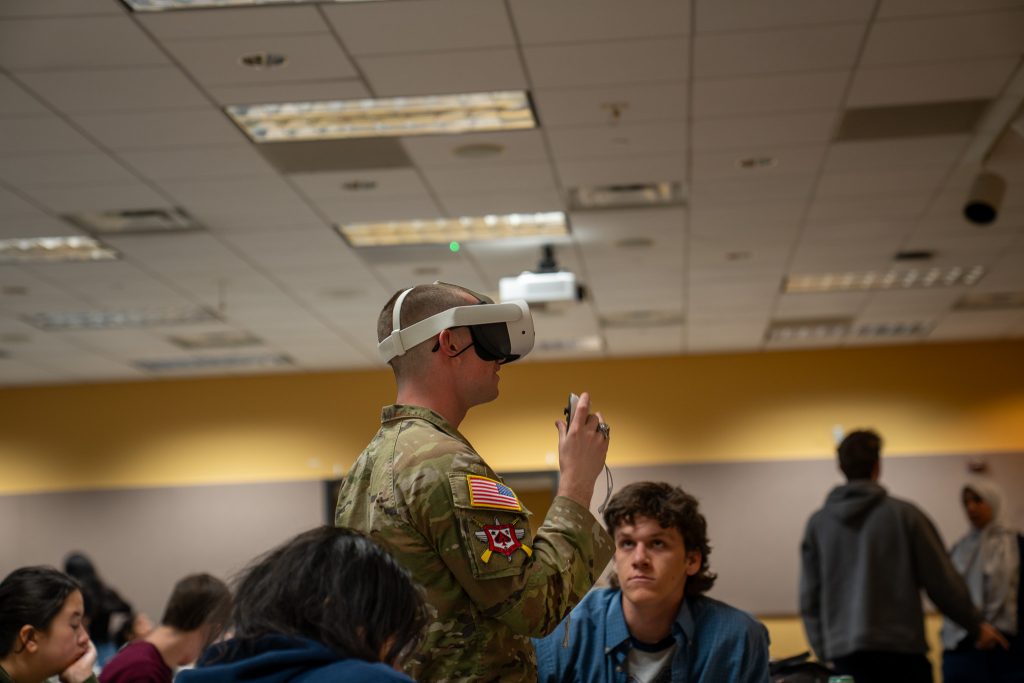Hands-on learning
Building easy-to-use databases that store, organize, and quickly retrieve a range of information is an important skill for computer science students going into industry jobs, Hamouda said. She has taught database development at Virginia Tech and other institutions for about a decade, constantly refining the course. Today it is a growing project-based learning experience for all students in the major.
“They begin looking for a real client on day one,” Hamouda said. “They then submit a project proposal to serve that client.”
In the past, most students chose U.S.-based projects, she said. Some have worked for family members who own businesses or for Virginia Tech labs or programs. But the global course grant allowed students to work on a project from another country and “visit” that country using virtual reality tools.
Omer Ahmed, a junior computer science major who helped build one of the Egyptian monuments databases in Hamouda’s class, said it “was really exciting because I got to combine my passion for technology and computer science, and also my curiosity about history, specifically Egyptian heritage.”
Undergraduate research assistant Ayda Haydarpour, also a junior in computer science, got another level of experiential learning by researching and leading implementation of VR headsets in the course.
“Using a VR headset, we can explore and experience different things that right now we cannot explore with a computer alone, and we get to have this immersive experience,” Haydarpour said.

